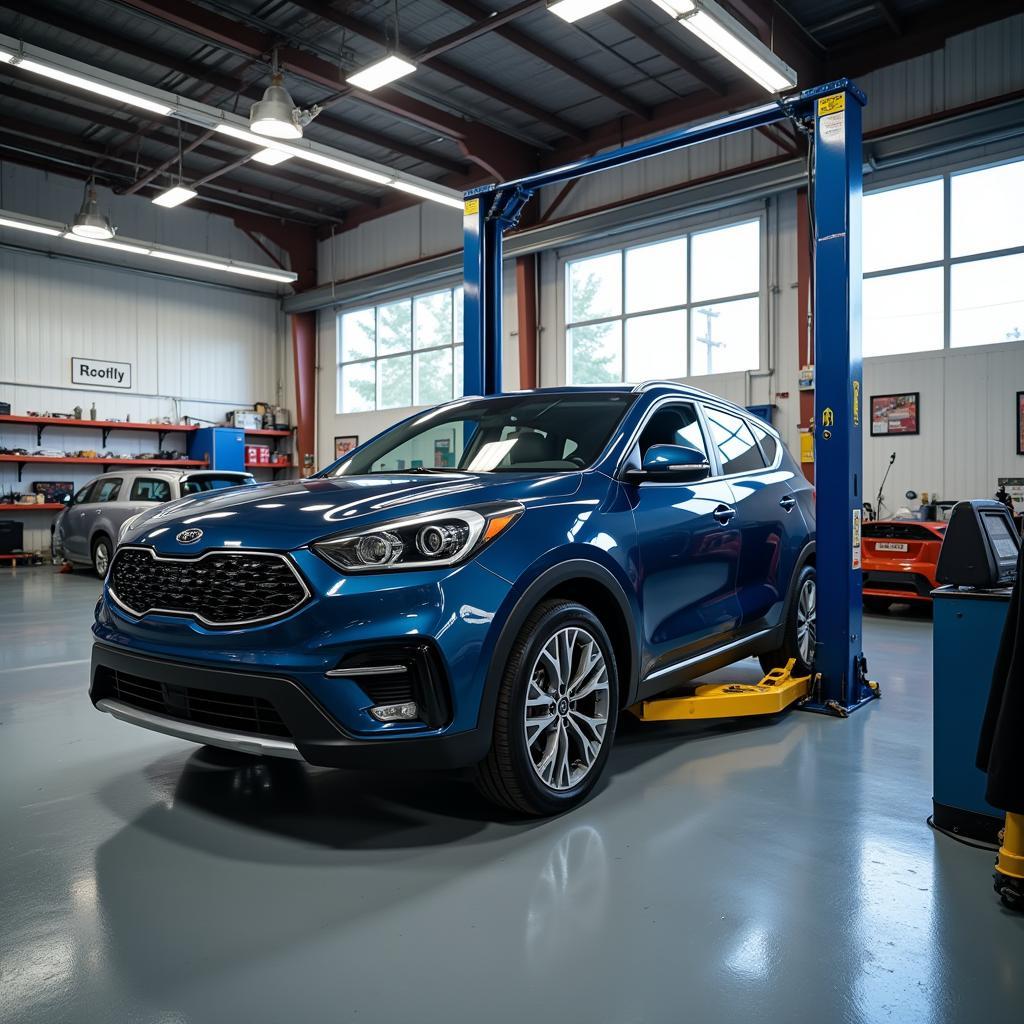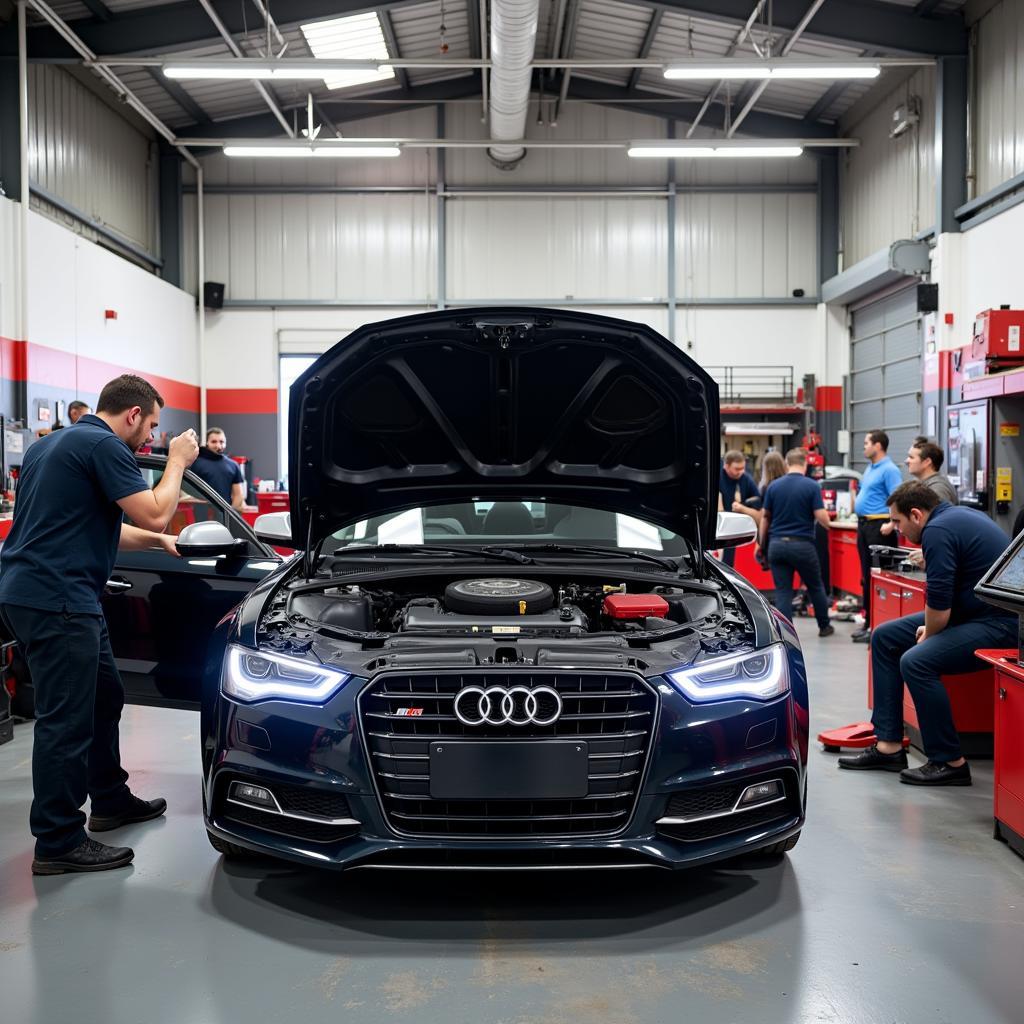What is a Full Service on a Car?
Owning a car can be amazing, but keeping it in top shape involves regular maintenance. You may have heard the term “full service” thrown around, but what does it actually mean? Understanding what’s included in a full car service can save you time, money, and potential headaches down the road.
A full car service is a comprehensive inspection and maintenance procedure that goes beyond your basic oil change. Think of it as a health checkup for your car. It’s designed to identify and address any potential issues before they become major problems, ensuring your car runs smoothly and safely.
What Does a Full Car Service Include?
While the specific checks might vary slightly depending on the mechanic and your car’s make and model, a full service generally covers these key areas:
1. Engine Oil and Filter Change: This is the foundation of car maintenance. Fresh oil lubricates the engine’s moving parts, reducing friction and wear, while the filter removes contaminants.
2. Fluid Level Checks and Top-Ups: Your mechanic will inspect and top up essential fluids like coolant, brake fluid, power steering fluid, windshield washer fluid, and transmission fluid (if applicable).
3. Brake Inspection: Your mechanic will check the condition of your brake pads, discs, calipers, and brake lines, ensuring they are in good working order and haven’t worn down.
4. Tire Condition and Pressure Check: Proper tire pressure is crucial for safety and fuel efficiency. Your mechanic will check the pressure and overall condition of your tires, including tread depth, looking for any signs of damage or uneven wear.
5. Battery Test: Your car battery powers the electrical components. A battery test checks its voltage and charging capacity to ensure it’s in good health.
6. Lights Inspection: All exterior lights, including headlights, taillights, brake lights, and turn signals, are checked to ensure they are functioning correctly.
7. Exhaust System Check: Your mechanic will inspect the exhaust system for leaks, damage, or blockages that could affect engine performance and emissions.
8. Steering and Suspension Check: This involves inspecting the steering components, suspension joints, and shock absorbers for wear and tear, ensuring a smooth and controlled ride.
9. Drive Belts and Hoses Inspection: These components are vital for engine operation. They’ll be checked for cracks, wear, and proper tension.
Why is a Full Car Service Important?
Regular full car services offer several benefits:
- Increased Safety: By addressing potential issues early on, a full service helps ensure your car is safe to drive.
- Improved Performance: Well-maintained engines run more efficiently, leading to better fuel economy and a smoother driving experience.
- Extended Lifespan of Your Car: Regular maintenance can significantly extend the lifespan of your vehicle, saving you money on costly repairs in the long run.
- Higher Resale Value: A well-maintained car with a full service history is more attractive to potential buyers, potentially increasing its resale value.
 Car on a Lift for Service
Car on a Lift for Service
How Often Do You Need a Full Car Service?
The general recommendation is to get a full service annually or every 12,000 to 15,000 miles, whichever comes first. However, it’s always best to consult your owner’s manual for specific recommendations for your car model.
“Regular car servicing is not just an option, it’s an investment,” says automotive expert James Peterson. “By being proactive with your car’s maintenance, you’re not only ensuring its longevity but also your peace of mind.”
What Questions to Ask Your Mechanic
When taking your car in for a full service, don’t hesitate to ask your mechanic questions:
- What is included in your full service package?
- Are there any additional services you recommend based on my car’s age and mileage?
- Can you provide a written estimate before starting any work?
- What brand of parts do you use?
- Do you offer a warranty on your work?
 Mechanic Explaining Car Service
Mechanic Explaining Car Service
Keeping Your Car in Top Shape
A full car service is an essential part of responsible car ownership. It ensures your vehicle runs smoothly, reliably, and safely for years to come. By understanding what a full service entails and asking the right questions, you can make informed decisions about your car’s maintenance and enjoy worry-free driving.
For more helpful tips and information about car maintenance, check out our articles on how to check if a car has full service history and how much is the average full car service.

